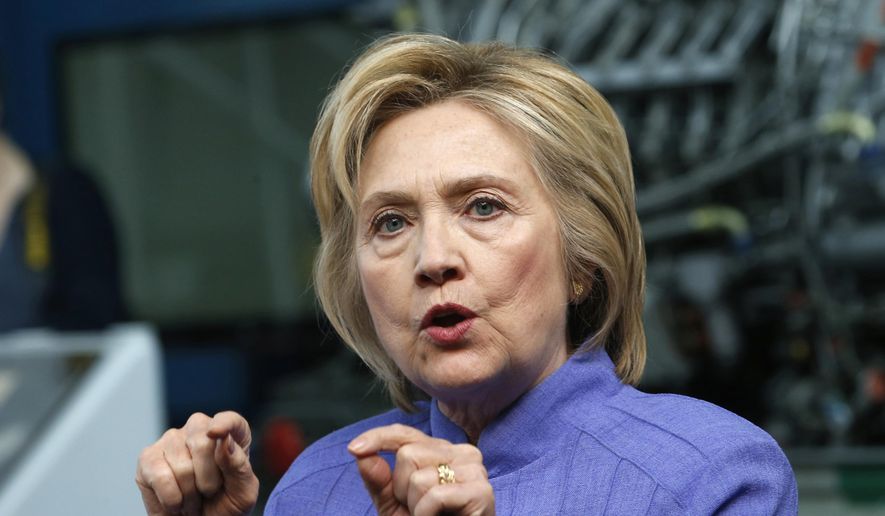OPINION:
The Trans-Pacific Partnership, or TPP in the jargon of the trade negotiators, looks dead. The cosmeticians at the mortuary say so. Both Donald Trump and Hillary Clinton are competing to preside over the funeral but U.S. Trade Ambassador Michael Froman says he and his colleagues are hearing encouraging noises from various members of Congress. He thinks that the deal may soon move forward.
The Trans-Pacific Partnership, which President Obama’s administration completed in October, forges economic ties with 11 Pacific Rim countries, including Japan, Australia and Vietnam. But the agreement is said by others to be languishing in a place that, if it isn’t a graveyard, looks like the a persuasive facsimile. But trade negotiators have to think positive thoughts.
“They’ve always been politically difficult,” Mr. Froman says of the prospects of the TPP. “We think [now] is the window of opportunity to get it done.” But not only have the two prospective presidential nominees spoken ill of the agreement, Republican support for the deal — critical for it to reach even a vote in Congress this year — has waned significantly.
Earlier this week the Senate leaders of both parties said TPP, despite strenuous efforts by President Obama over the months, won’t get a vote this year. Both Sen. Mitch McConnell, the Senate majority leader, and Sen. Richard Durbin of Illinois, the minority whip, say the agreement was effectively doomed by the opposition of Mr. Trump and Mrs. Clinton.
“With both the Democrat and Republican candidates for president opposed to the agreement,” says Mr. McConnell with the understatement which Senate leaders prefer, “it’s probably not the best time to be considering the agreement.” Sen. Durbin posed a pointed rhetorical question to reporters Thursday: “Did you catch a signal from the fact that both presidential candidates oppose it, and that perhaps this is not the right moment in history to call up TPP?”
Resurrection men might succeed in bringing the agreement to congressional consideration later, but not this year, and if the next president maintains his or her opposition the carefully negotiated agreement will have to go back to the table for revisions and modifications.
Ambassador Froman argues that failure to act now not only imposes significant economic costs, but would damage perception of American leadership in Asia. He says moving to ratify the agreement is crucial before President Obama’s presidency ends less than six months from now. “If it’s not done this year, it’s quite unclear when it would get done, given the broader political developments.”
Mr. Froman says many congressmen understand the economic and political costs of letting the agreement die. “As we display the TPP to members of Congress, they see what’s in it for their constituents and stakeholders they care about.”
He estimates that failing to implement TPP would cost $94 billion in the first year. “Failure to move forward not only imposes a significant economic cost, but is a self-inflicted wound when it comes to American leadership in this region.”
The ambassador spent three days on Capitol Hill this week and with the summer congressional recess coming up he and his team will move across the country trying to build grass-roots support for the agreement. He and other members of the administration have conducted 270 grass-roots events in behalf of TPP over the past two months.
In platform hearings in Cleveland this week, Republicans did not include the deal in their considerations, and Democrats are expected to avoid TPP platform talk later in Philadelphia. The opposition of both Donald Trump and Hillary Clinton should be enough to keep TPP out of the party platforms.




Please read our comment policy before commenting.